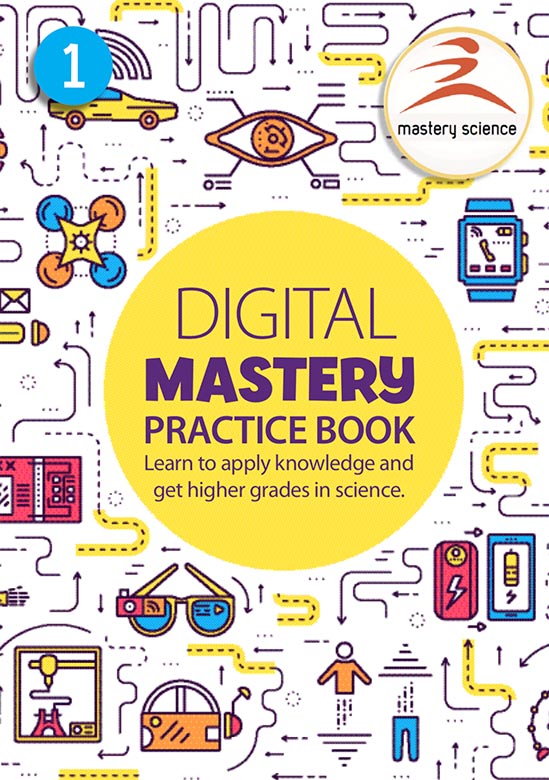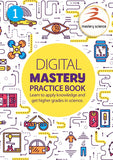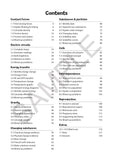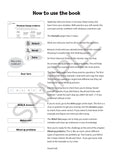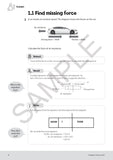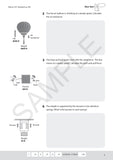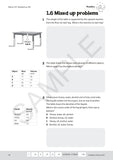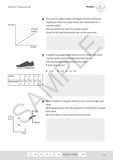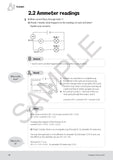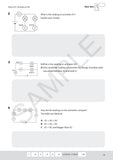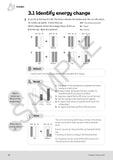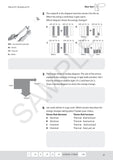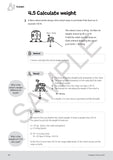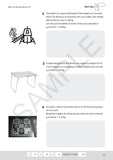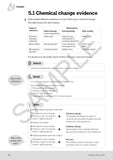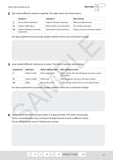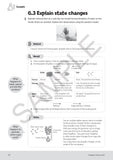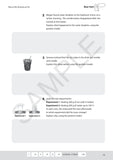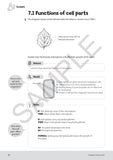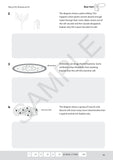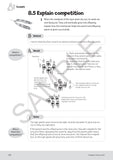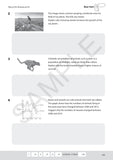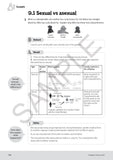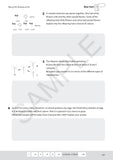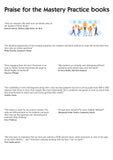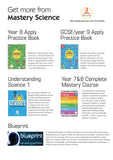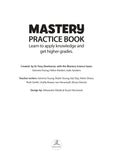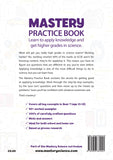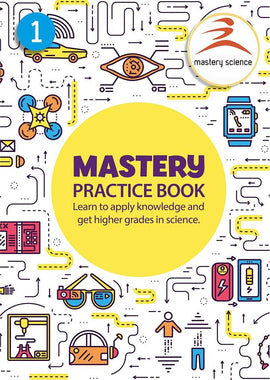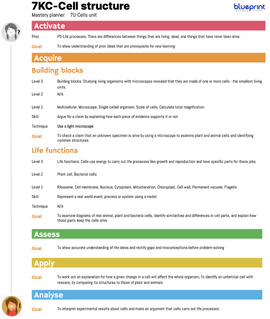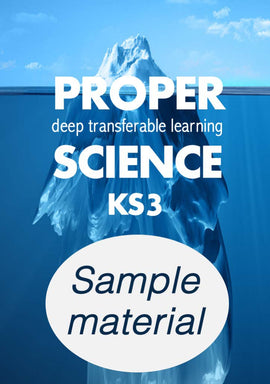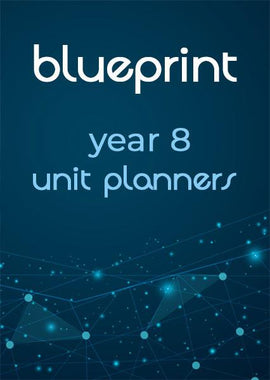Year 7 Digital Mastery Practice Book
For individual ebook click here. Download samples
Help students go beyond recalling information and teach them to apply concepts. By starting to practise the strategy of 'Detect, Recall and Solve' from year 7, they will become expert at solving problems by GCSE. This book contains hundreds of questions and covers all the concepts in year 7 of the 5-year plan (Blueprint).
A powerful strategy for Apply questions. The book teaches students, particular middle and low achievers, a powerful and repeatable exam technique: how to approach apply questions set in unfamiliar situations, by analysing the question, recognising the critical knowledge, and putting together a logical answer.
Masses of challenging practice to deepen understanding. The wealth of 'your turn' questions helps students go beyond recalling of knowledge, and practise using it in a variety of applications.
Builds confidence to tackle exam questions. Many students give up when faced with a difficult exam question. The book shows students they can do it. It breaks down the process, gives lots of scaffolding and gradually builds their skills towards independence.
You will get a download link after payment.


Visit the Extras page to download the hints and answers.
The digital version is exactly the same content as the print book. The pdf is personalised with your school name. Please see 'license details' for permitted uses of the digital version. Chapters correspond to the units in our 5-year plan, Blueprint. For what's in each see 'contents' below.
This license permits the purchasing school to use the digital version at a single school site for the following uses:
- Download the pdf to a private school server or private virtual learning environment. This includes Google Classroom.
- Direct download of the pdf onto school-owned devices such as tablets and laptops
- Provide a pdf copy to members of the science teaching staff on school-owned devices while employed by the school
- Print copies of the pages for school students' use
The license does not allow the following uses:
- Use of the pdf on multiple school sites, or several schools in an Academy chain
- Emailing students the pdf for home use. Instead use cases 1 or 2 above
- Use of the pdf by the science teaching staff at any another school or organisation
- Sharing of the pdf with anyone outside the school
- For any other use of the pdf, please contact us.
Book 1 is part of a series which is designed to give extensive practice in problem- solving for all the key concepts in secondary science. The names and sequence of concepts are based on the 5-year plan, Blueprint.
Each focusses on Key Concepts in different years of the secondary science curriculum towards GCSE.
Book 1 focusses on 25 concepts generally taught in year 7 or at the beginning of a secondary science course.
Chapter 1: Contact forces
- Balanced or unbalanced
- Friction
- Density
Chapter 2: Electric circuits
- Electric current
- Resistance
Chapter 3: Energy transfer
- Energy
- Wasted energy
- Heat & temperature
Chapter 4: Gravity
- Weight
- Gravitational force
- Solar system
Chapter 5: Changing substances
- Chemical & physical
- pH scale
- Neutralisation
Chapter 6: Substances & particles
- Particle model
- Mixtures
- Solutions
Chapter 7: Cells
- Stem cells
- Cell transport
- Cell division
Chapter 8: Interdependence
- Feeding relationships
- Competition
- Abiotic & biotic factors
Chapter 9: Reproduction
- Sexual & asexual
- Menstrual cycle
- Embryo development
Chapter 10: Watch out
- Misconceptions questions on each chapter
The first page of each problem is a clear and visually explained worked example. It shows students a 3-step process for successfully solving unfamiliar questions:
- Detect: work out what you need to do to answer the question
- Recall: bring to mind all the relevant knowledge
- Solve: go step-by-step from what you know to the solution
The second page is a set of 'your turn' questions to try. The first is similar to the example to check that students can follow the thinking. Further questions are carefully crafted as stepping stones to build their competence and confidence. There are hints to get students unstuck, and answers at the back.
At the end of a chapter, students are ready for the 'mixed up problem' challenge. Like in an examination, several types of problems are mixed together, but now students have learned the skills of recognising which knowledge to use in each situation.
We accept payment by credit card and PayPal.
Unfortunately, we cannot offer a refund for the digital version.
